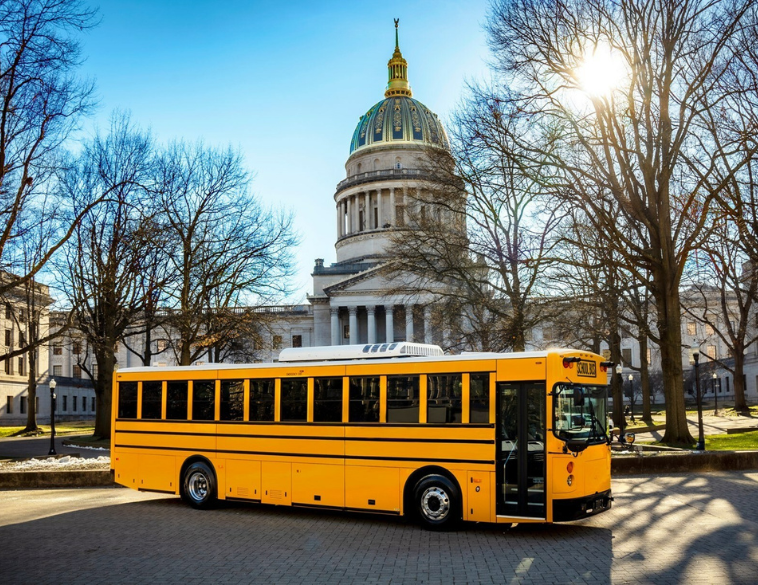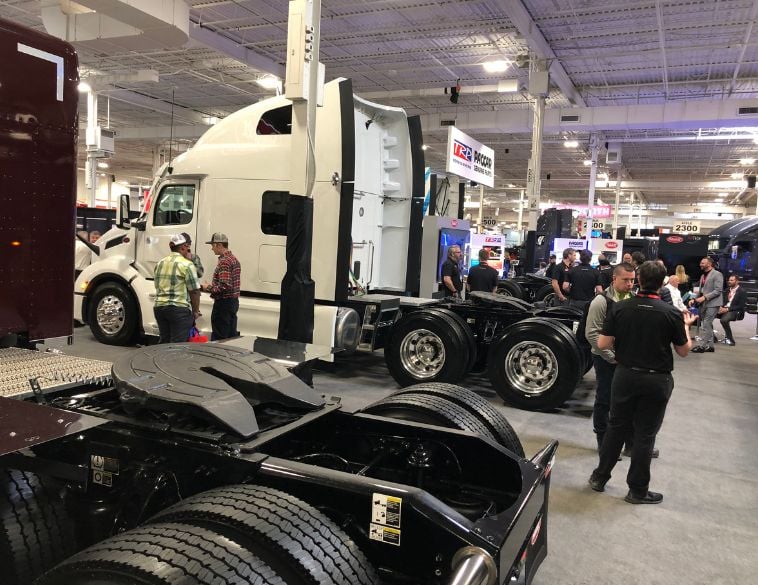GreenPower Motor Company Inc., a manufacturer and distributor of purpose-built, all-electric, zero-emission medium and heavy-duty vehicles serving the cargo and delivery market, shuttle and transit space and school bus sector headquartered in Vancouver, B.C., announced it received an order for 41 GreenPower all-electric, purpose-built Type D BEAST and Type A Nano BEAST school buses totalling $15-million from the state of West Virginia.
“Since we first announced our intent to manufacture in West Virginia, we’ve made tremendous progress on our mission to be the leading manufacturer of purpose-built, all-electric school buses,” said Brendan Riley, President and Director at GreenPower. “Today marks another milestone on that journey through our partnership with the state of West Virginia. We have been able to reach this point because of the strong commitment to GreenPower and an all-of-the-above energy policy by Governor Jim Justice, his cabinet and the leadership of the state legislature. We look forward to continuing to provide a positive impact on West Virginia’s economy with clean energy jobs.”
Since taking possession of the West Virginia manufacturing facility in August of 2022, GreenPower has been performing final assembly and inspection on EV Star Cab & Chassis in the plant as part of its supply agreement with Workhouse Group. This announcement marks GreenPower’s shift in production at the South Charleston facility to all-electric school buses. Beginning in the next few weeks, GreenPower’s East Coast manufacturing facility will first begin production of its Nano BEAST, the only purpose-built, all-electric, zero-emission Type A school bus on the market, to meet the demand of its customers. The company will then transition to the production of the Type D BEAST at the facility.
Financially beneficial to school districts
“The fact that our workers will be manufacturing the school buses being purchased by the state that their kids and grandkids will be riding to and from school on brings me great pride,” Riley commented, adding that the ride will be “the safest and healthy transportation available to them” and financially beneficial to the school districts. Operating and maintenance costs for a GreenPower all-electric school bus are believed to be 70% to 80% less than a conventional diesel school bus. The West Virginia legislature has also passed a new law providing an additional 15% to school districts under the state’s School Foundation Allowance for miles driven in a GreenPower all-electric school bus manufactured in West Virginia.
Riley said that the recent appointment of John McDavid as production manager in West Virginia sets the stage for the ramp-up in production at the facility. The team will immediately increase the hiring activities for the production facility. Interested applicants should visit the “Careers” section at GreenPowerMotor.com under the “About Us” tab.
“As we migrate to the production of school buses in the West Virginia facility, there will be a need to increase the number of employees from the core group that has been working here since last year,” Riley continued. He noted that about 65 employees will be necessary by October and that GreenPower is on track to meet the 200-employee goal by the end of 2024. Riley also noted that GreenPower intends to have the employee training programs conducted under its partnership with BridgeValley Community & Technical College.
West Virginia’s purchase of the GreenPower school buses comes on the heels of the pilot project directed by Governor Justice last June. For the past seven months, 15 school districts have deployed either the BEAST or Nano BEAST in their West Virginia county school system. The program, which kicked off at the beginning of the school year, has provided valuable feedback to GreenPower and has given the school districts the opportunity to evaluate the performance of the buses in various geographies – on rural roads, in mountainous conditions and in colder temperatures. Next week, the fifth round of the pilot program will deploy to finish out the school year.



